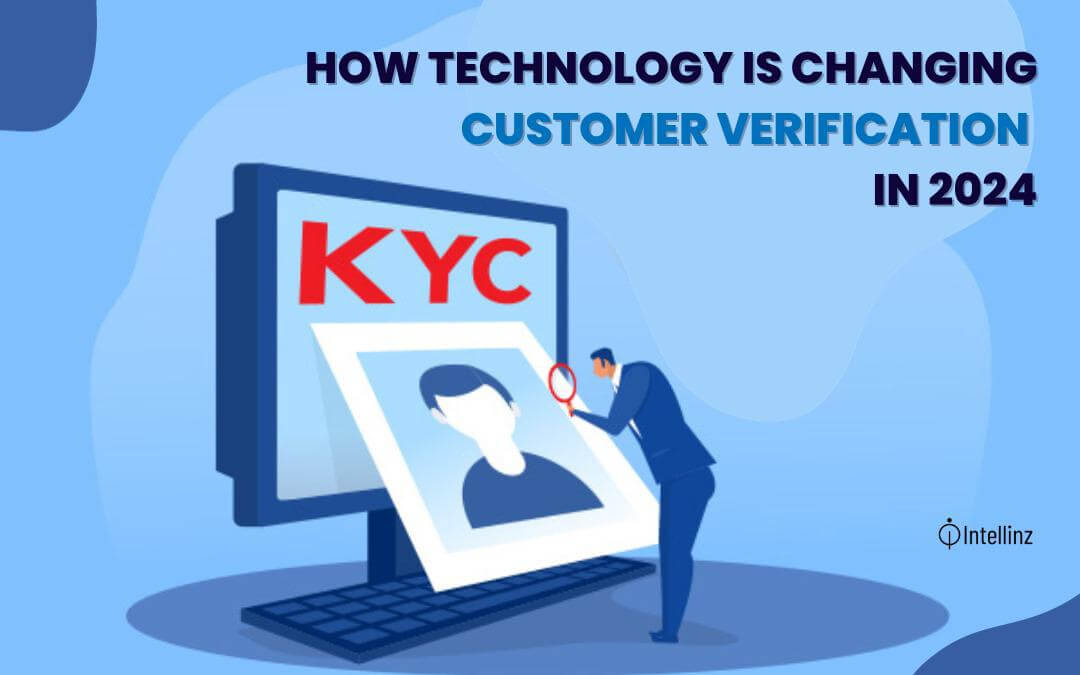As the digital world changes how businesses connect with their customers and vice versa, technology plays a crucial part in today’s society. Businesses have swiftly realized the need for digital networking technologies.
Digital space providers are constantly expanding in businesses such as e-commerce, finance, and social media. Customers’ needs are changing, and they are taking advantage of the increasing convenience of digital means such as online buying and online banking.
In this article, we will discuss how technology will reshape customer verification in 2024.
Shift from Traditional to Digital Customer Verification
Advances in technology, digital security, and the desire for more efficient and user-friendly processes have all contributed to the shift from traditional to digital customer verification.
Technological Advancements include the following:
-
- Biometric Authentication: The advancement of biometric technology like as fingerprint scanning, facial recognition, and iris scanning allows for more secure and accurate consumer verification.
-
- Blockchain Technology: Blockchain technology provides decentralized and tamper-resistant identity verification, which improves security and lowers the risk of fraud.
-
- Machine Learning and AI: These technologies enable more complex pattern identification and anomaly detection, enhancing consumer verification accuracy.
As companies recognize the advantages of digital client verification in terms of security, efficiency, and user experience, the shift to digital techniques is likely to continue and grow in the coming years.
Using Biometric Verification
Biometric verification methods such as facial recognition, fingerprint scanning, and retinal scanning have become commonplace in modern gadgets and security systems.
Two-step verification (2FA) improves digital security by demanding two unique forms of identity. Knowledge-based authentication asks users personal questions to offer an extra layer of protection.
Also, to authenticate identities, services today assess internet behaviors, transaction patterns, and even social media activity.
A Mobile-First Verification Solutions
As more individuals around the world rely on smartphones for numerous areas of their everyday lives, mobile-first authentication solutions are becoming increasingly popular.
Here are the following are major features of mobile-first verification solutions:
- Biometric Identification
- two-factor authentication.
- Identity Verification Mobile Apps
- SMS Validation
These solutions make use of mobile devices’ capabilities to provide simple, secure, and efficient methods of authenticating user IDs.
Mobile-first verification solutions are not only handy for users, but they also fit into today’s lifestyle, since mobile devices are everywhere.
Globalization and International Commerce
Globalization and international trade are becoming more common in today’s corporate world. As firms expand beyond their domestic borders, the demand for efficient and safe cross-border transactions has increased.
Online transactions give enormous opportunities for firms, but they also present obstacles relating to regulatory complications, cultural differences, and risk management.
Companies that successfully handle these hurdles might benefit from expanding markets, increased competitiveness, and diverse revenue streams.
In Summary
In the digital age, identity verification is critical for fraud protection, regulatory compliance, and a better user experience.
To achieve accurate and secure identity verification processes, businesses must implement robust solutions that leverage new technologies.
They can protect their customers, defend their reputation, and promote growth in an increasingly digital world by doing so.






